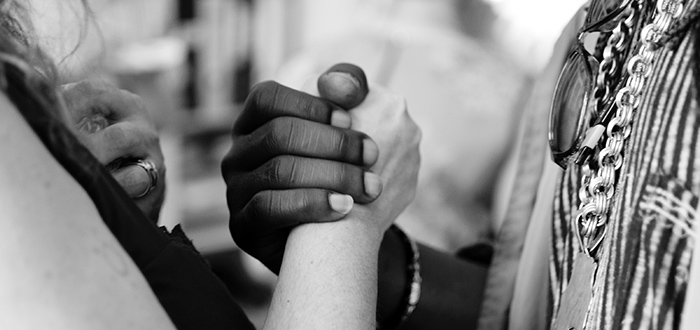Like many people, the tragic killings of George Floyd, Breonna Taylor, and Ahmaud Arbery have led me to pause, pray, and pursue the Lord. As I process this, I had a thought I could not shake.
I’m 35 now. My father was 34 when Rodney King was beaten by the L.A.P.D. in 1991. My grandfather was 35 in 1963 when four men placed a bomb on the exterior wall of 16th Street Baptist Church, murdering four little girls and injuring 22 others. Our entire family is from Birmingham, Alabama. We grew up a mere 10 miles from the church. Sure, the world has changed over the last 50 years but not enough.
What must I do if I want the world to be different when my little girl is 35? What must we as the church do if we want the world to be different?
I’m new to this work and am certainly not an expert, but here are few thoughts I’ve had that might help other Christians like me respond to the ongoing discussion about injustice and racial inequality both personally, and in the groups we lead in our churches.
First, we need to pray. As people who believe the world has been corrupted by sin, we should not be surprised that sin has corrupted our hearts as well as the systems designed to protect us. Therefore, we must repent and ask God to reveal our own hidden sin and forgive us. Then we must call on the Lord to fix broken systems, so they are equitable and just for people of every color.
Second, we need to teach the whole counsel of God. The same message which has redeemed our souls to God also has the power to reconcile us to our neighbor. Racism is a sin that must be condemned. Those of us who teach regularly need to teach against racism exegetically, topically, and systematically in the same way we would teach about abortion or any other issue. If we’re people of the Book, we need to teach the whole Book.
Third, we need to pay attention. We need to read books and follow people on social media who will help us understand experiences we haven’t lived. When brothers and sisters of color share their experiences, we need to listen and believe them. Sharing your struggle and pain with others is always difficult. It is particularly difficult when your experience is continually misunderstood or dismissed. Listening is the minimum that love requires. If Jesus is near to the broken-hearted and uplifts the crushed in spirit, we should be as well.
Lastly, we need to act. We should not be like the lawyer who sought to justify himself by asking Jesus, “Who is my neighbor?” We know the answer to this question. All people, without qualification, are our neighbors. The Scriptures call us to act out of love and care for our neighbor. Therefore, moved by prayer and the Word of God, we need to build bridges with people who do not look like us. We need to speak up when we see injustice, and advocate to change inequitable policies and systems. There are many steps to take, and the journey may feel overwhelming. But for the world to change, Christians need to get moving.
If you’re new to this conversation and looking to take a first step, consider working through a group study designed to help you think through these crucial issues from a Christian framework such as The Church and the Racial Divide or Imago Dei.
Reid Patton is an editor and content creator for Lifeway Christian Resources. For the past ten years, he has developed Bible studies for pastors and churches across the country. Outside of work, Reid enjoys reading books, following the NBA, listening to records, watching movies, and researching his next trip to Walt Disney World. He lives in Spring Hill, TN with his wife, Kristen, and daughter, Ceile. You can find him on Twitter at @jreidpatton.





Thank You for this Reid. I really appreciate your thoughts.
Along side your comment that, “Christians need to get moving.”
I would add that Christians need to start living Biblically on both sides of the front door of their hearts, homes and church homes. The duplicity must grieve the heart of God. I’m thankful for His patience, grace and mercy.